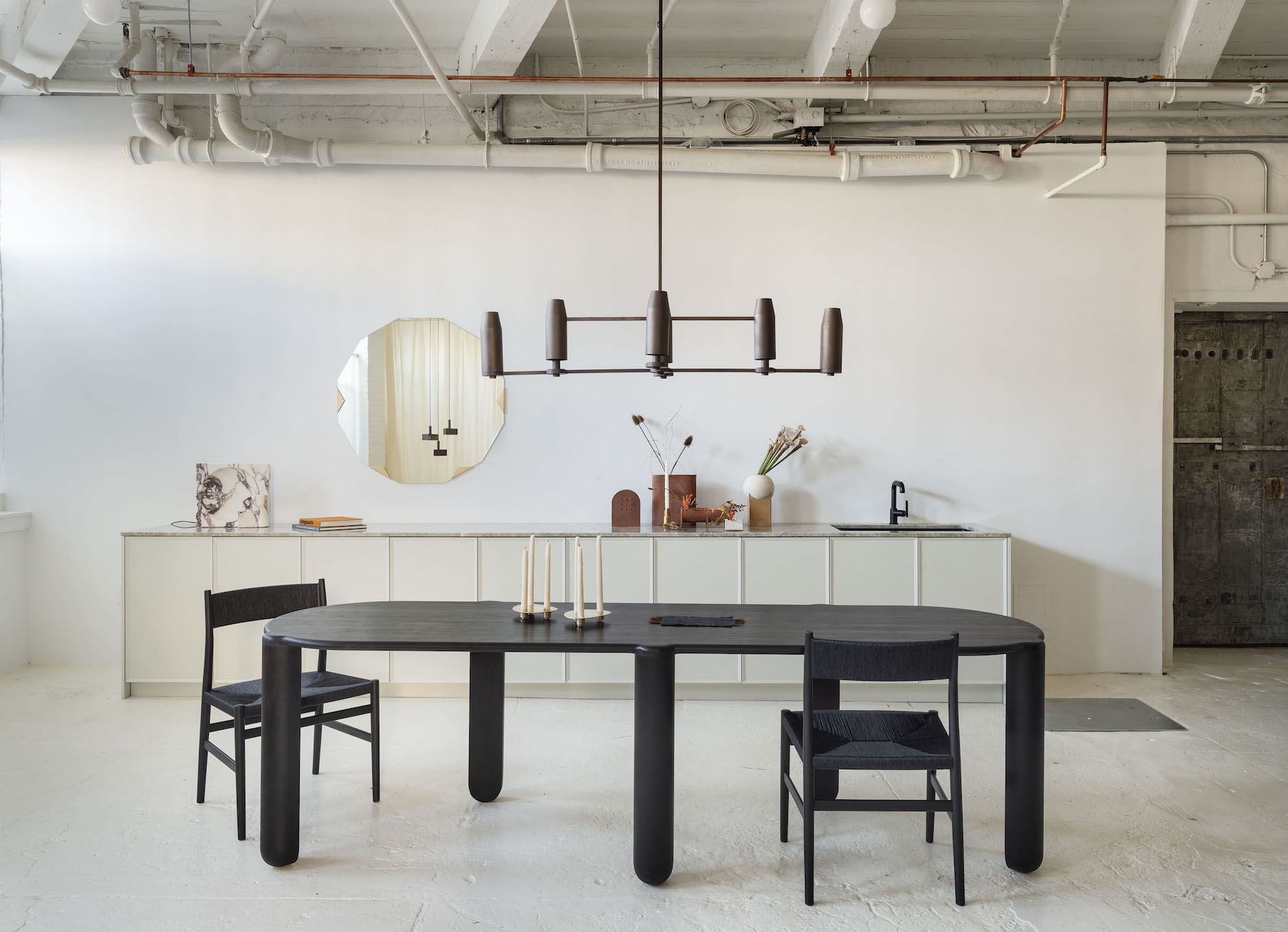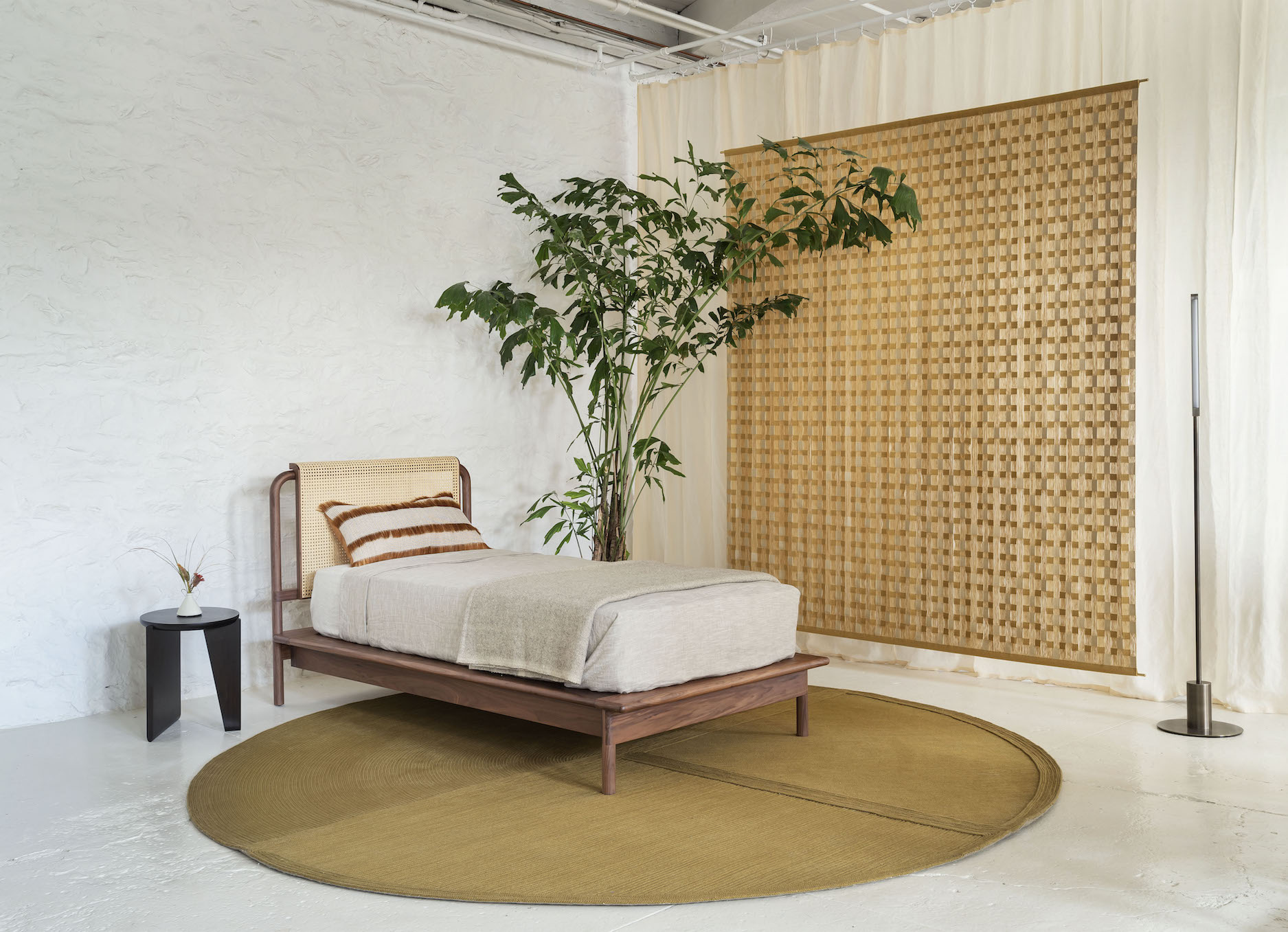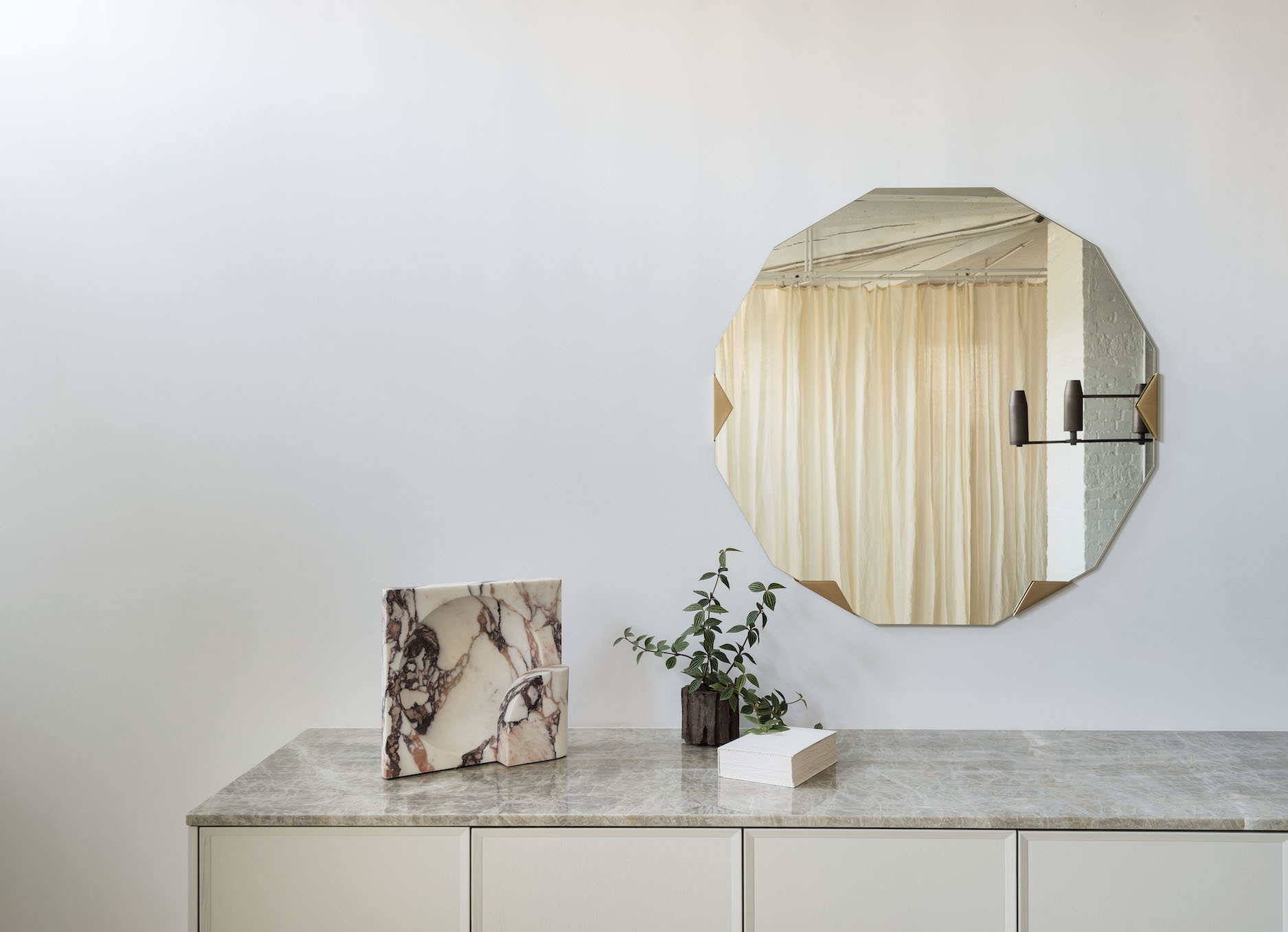The List’s Project Spotlight column features unparalleled projects created by our forward-thinking List members. By going straight to the source—and having the designers demystify the methods behind their designs—we hope to enlighten and inspire our creative audience to further push the boundaries of what is possible in the realm of design.
In the Old American Can Factory, a historic building in the heart of Gowanus, Brooklyn, Radnor’s brand-new showroom has taken shape. The expansive, light-filled interior, a former canning warehouse, offers a welcome blank canvas for the furniture showroom’s expertly curated selection of artisanal furnishings, lighting, and accessories, which founder Susan Clark assembles from both emerging and well-established makers around the world. Shortly after the opening, Surface caught up with Clark to learn how the new showroom came to be and what else to expect from Radnor in the near future.
Radnor is a member of The List, the destination for all things Surface-approved. Want to join The List? Contact our team to find out how to apply.
APPLY
Project Description: We have officially opened our very own Radnor Studio in The Old American Can Factory in Gowanus, Brooklyn, in conjunction with a number of exciting new collection launches. We are expanding the Radnor Made Collection with new additions, including the Pillar Coffee Table and Halyard Rugs by Bunn Studio, as well as the new Marilyn Twin Bed and Mae Single Bay Shelving by Adam Rogers. We will also be showcasing works by newly represented designers including Salem van der Swaagh, Alexandra Kohl, Henry Wilson, and Hokuto Sekine as well as the unique designs of Miller Yee Fong for the Fong Brothers, and David Thulstrup and OEO Studio for BRDR Kruger.
Inspiration: The inspiration for the studio opening had much to do with the building and its surrounding community. Located in Gowanus, a burgeoning epicenter of the Brooklyn design movement, the studio is housed in The Old American Can Factory, a historic six-building industrial complex that serves as a curated haven to more than 300 artisans and makers. It is important to us to be rooted in community and craft, which explains why the move to Gowanus, and the Can Factory in particular, came so naturally. A sense of community is at the core of everything we do.
Impact of Project: I always seek to focus on integrating craft as a key thread into the work I represent. With the opening of the studio and the new collections, we have pulled talent from all over the world, all of whom are makers that prioritize craft over trend. This presentation is a departure from previous installations as it is done entirely in the Radnor studio. I want to truly create something that can support not only a community but also contribute to the conversation of design and the art of making.
What’s Next for Radnor: We are already in full design mode for our next fully experiential 2020 space. We are working with Elizabeth Roberts Architects as our co-curator and DDG as our site partner for the spring 2020 launch. This new ‘Radnor Studio’ acts primarily as our home base for design and collaboration with the designers and makers that we work with as well as a showroom for any pieces not incorporated into our experiential spaces.



